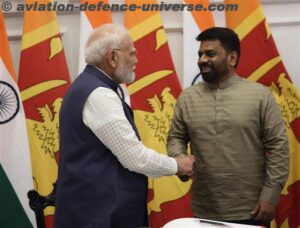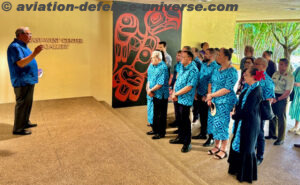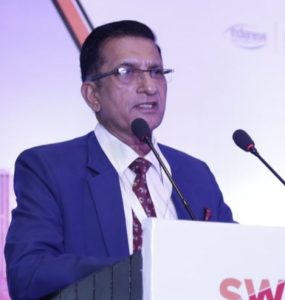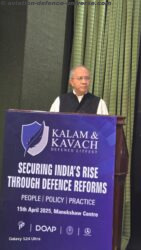
By Sangeeta Saxena
New Delhi. 05 February 2023. International ties and geopolitical leanings have always been a matter of interest globally but what has always raised eyebrows are meetings of leaders who make a difference to the world’s existing geopolity. For the last many days Israel and France have been the cynosure of all eyes, as the two leaders Emmanuel Macron and Benjamin Netanyahu are seen as friends and compatriots in talking world and regional peace.
“I met last night with French President Emmanuel Macron and we discussed in detail the ways to fight the Iranian nuclear threat. I emphasized the need to strengthen deterrence against Iran and its metastases in the Middle East, and said that significant sanctions must be imposed on the Iranian regime. The time has come for Iran’s Revolutionary Guards to be added to the European Union’s terrorist list. We also talked about the regional arena and the need to preserve regional stability, with an emphasis on Lebanon. In addition, we discussed opportunities to expand Israel’s circle of peace,” said Prime Minister Benjamin Netanyahu of Israel who is on a diplomatic visit to Paris and amidst media glare met the French President Emmanuel Macron at the Elysee Palace.
France and Israel are old friends and France was one of the first countries to establish diplomatic relations with Israel, on 11 May 1949. France then actively helped consolidate the young State by contributing to its defence effort. France adopted a position of neutrality in the Six-Day War in 1967 (call for moderation on both sides, embargo on arms deliveries to the region before hostilities broke out). United Nations Resolution 242, unanimously adopted by the Security Council members including France, calls on Israel to withdraw “from territories occupied in the recent conflict”. Ever since, France’s policy has been marked by a desire to strike a balance between its support for the State of Israel, of which the right to exist and right to security are unquestionable, and condemning the policy of settlement-building in occupied territories which is contrary to international law and endangers the two-state solution.
Iran, Ukraine and Lebanon were the focus of attention. What is interesting is the fact that one leader who with his long backdrop of leading a country which has been in turmoil despite it’s love for peace is back as Prime Minister and chose to meet old friend France when it came to discussing regional stability and global peace.
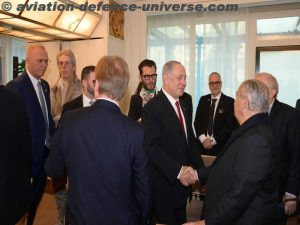
He also met the French Jewish community representatives and representatives of the business community in France, who are interested in investing in the State of Israel. In the 21st century, France has the largest Jewish population in Europe and the third-largest Jewish population in the world (after Israel and the United States). The Jewish community in France is estimated to number 480,000–550,000, depending on the definition being used. French Jewish communities are concentrated in the metropolitan areas of Paris, which has the largest Jewish population (277,000), Marseille, with a population of 70,000, Lyon, Nice, Strasbourg and Toulouse.
The majority of French Jews in the 21st century are Sephardi and Mizrahi North African Jews, many of whom (or their parents) emigrated from former French colonies of North Africa after those countries gained independence in the 1950s and 1960s. They span a range of religious affiliations, from the ultra-Orthodox Haredi communities to the large segment of Jews who are entirely secular and who often marry outside the Jewish community.
The bilateral relationship between France and Israel is also supported by the presence in Israel of a large French community (150,000 people), as Israel is home to approximately 700,000 French speakers, making up close to 20% of the population).
Prime Minister Benjamin Netanyahu thanked French President Emmanuel Macron for sharing in the bereavement of the families who lost loved ones in the murderous terrorist attack in Jerusalem recently. Together they sharply condemned Iran’s active participation in harming innocent civilians in Ukraine. But their strong focus was at on ways to confront the Iranian nuclear threat. Prime Minister Netanyahu stressed that deterrence with Iran and its proxies in the Middle East needs to be strengthened. He also called for imposing significant sanctions on the Iranian regime and for the Revolutionary Guards to be included on the EU terrorism list.
Neteyahu stated, “I met with French President Emmanuel Macron. At the focus of our long conversation, I must say, our common position – to confront Iran’s efforts to obtain nuclear weapons and a nuclear arsenal. Our positions have drawn closer than I can remember in some time. Europe identifies more with the Israeli position, although the positions are not identical, but they are much closer, as we also realized during the visits of Jake Sullivan and Secretary of State Antony Blinken on the Iran issue.”
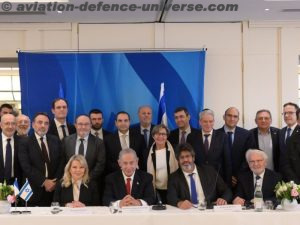 Meanwhile France has to balance it’s Israel and Palestine stands. Platform of French NGOs for Palestine in a formal press release stated , “As the violence linked to occupation and colonization increases, it is no longer possible for France to be satisfied with ritual calls for the relaunch of the peace process within the framework of a two-state solution. Today, colonization and occupation are the main obstacles to peace and justice in the region. France must adopt a firm position, in particular by positioning itself for a ban on the trade in products from the Israeli settlements on the French and European markets.”
Meanwhile France has to balance it’s Israel and Palestine stands. Platform of French NGOs for Palestine in a formal press release stated , “As the violence linked to occupation and colonization increases, it is no longer possible for France to be satisfied with ritual calls for the relaunch of the peace process within the framework of a two-state solution. Today, colonization and occupation are the main obstacles to peace and justice in the region. France must adopt a firm position, in particular by positioning itself for a ban on the trade in products from the Israeli settlements on the French and European markets.”
The statement added, “ the colonization of the West Bank, including East Jerusalem, by the Israeli authorities is responsible for multiple violations of human rights and international humanitarian law (massive seizures of Palestinian land and real estate, murders of civilians, forced transfers, draconian restrictions on movement, etc.). Faced with the Israeli government’s increased repression and its threats of collective punishment – in violation of the Geneva Conventions and human rights – as well as the increase in settler violence, we ask France to quickly engage in the protection of the Palestinian people.” The investors, some of whom are already active in Israel, expressed interest in increasing their investments; others expressed great interest in entering the Israeli market, mainly in infrastructure.
It was frendship, comradierre and concern for each other but the question which kept popping was are Israel and France good friends? Israel and France have a long-standing relationship, and the two countries have maintained diplomatic and economic ties for many years. However, their relationship has not always been smooth, and there have been some political differences between the two countries in the past. In recent years, the relationship between France and Israel has improved, and the two countries have been working together on a number of fronts, including defense, security, trade, and cultural exchange. In general, it can be said that the relationship between France and Israel is good, but it is also complex and multi-faceted, reflecting the many challenges and opportunities that both countries face in the world today.






































